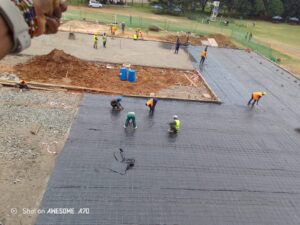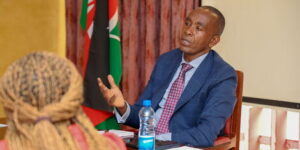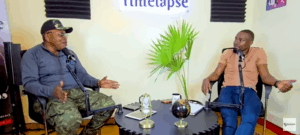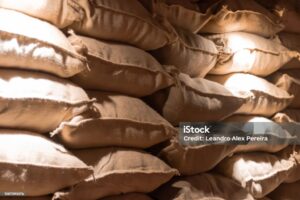
By Derrick Wanjala
Summary
– Angry voters overturn 30-year ANC majority.
– The party insists it would not abandon the incumbent president.
– Parties must agree on a new coalition within 14 days.

President Cyril Ramaphosa urged South Africa’s political parties to work together for the country’s sake after the final results of last week’s election revealed that his African National Congress had lost its majority for the first time.
The election results, released on Sunday, are the worst for the ANC – Africa’s oldest liberation movement, previously led by Nelson Mandela – since it took power 30 years ago, ending white minority rule.
Voters, outraged about joblessness, inequality, and rolling blackouts, reduced their support for the ANC to 40.2%, down from 57.5% in the previous 2019 parliamentary election.
Official results showed that the ANC won 159 seats in the 400-seat National Assembly, down from 230 earlier.
As a result, the ANC will have to share power, most likely with a significant political opposition, in order to maintain it – an unusual situation in South Africa’s post-apartheid history.
“South Africans expect the parties for which they voted to find common ground, overcome their differences, and work together for the benefit of all. “That’s what South Africans have said,” Ramaphosa stated after the electoral commission released the final results.
He described the election as a “victory for our democracy.”
Political parties now have two weeks to reach an agreement before the next parliament meets to elect a president, who will most likely be from the ANC, as it remains the dominant power.
“This is the time for all of us to put South Africa first,” Ramaphosa stated.
ANC officials earlier on Sunday said the party was humbled by the outcome and had “nothing to celebrate,” but they stood with Ramaphosa, Mandela’s former main negotiator to end apartheid, and vowed they would not succumb to demands to step down.
The dismal performance has fueled speculation that Ramaphosa’s days may be limited, either due to pressure from a potential coalition partner or as a result of an internal leadership challenge.
“That is a no-go area,” said Fikile Mbalula, the ANC’s secretary general, during the party’s first news briefing since the elections.
“Did we make mistakes?” Yes, we did. In governance and everywhere else,” he added, adding that the ANC was now committed to building a “stable and effective government.”
The ANC’s leadership will meet on Tuesday to discuss the next steps.
COSATU, South Africa’s largest trade union outfit and a significant ANC ally, also backed Ramaphosa.
“The ANC and President Ramaphosa must lead a coalition,” COSATU spokesman Matthew Parks said.
‘Doomsday Coalition’
Prior to Wednesday’s vote, the ANC has won every national election by a landslide since 1994, but its popularity has dwindled over the previous decade.
The main opposition, the white-led, pro-business Democratic Alliance (DA), received 21.8% of the vote.
uMkhonto we Sizwe (MK) – “spear of the nation” in Zulu – a new party led by former President Jacob Zuma and named after the ANC’s previous armed wing, won 14.6% of the vote, causing the ANC the most damage.
Despite performing better than predicted, MK stated that it was considering appealing the findings in court.
The far-left Economic Freedom Fighters (EFF), led by former ANC youth leader Julius Malema, received 9.5%.
The thought of an ANC alliance with either the EFF or MK has alarmed South Africa’s business community and overseas investors, who prefer a coalition that includes the DA.
DA head John Steenhuisen announced on the party’s YouTube page that it had formed a team to begin negotiations with other parties in order to avert such an alliance, which he referred to as a “doomsday coalition”.
“For the Democratic Alliance, burying our heads in the sand while South Africa faces its greatest threat since the dawn of democracy is not an option,” he stated.
The small Inkatha Freedom Party (IFP), a conservative Zulu party with a stronghold in KwaZulu-Natal province that received roughly 4% of the vote, planned to meet separately on Sunday to deliberate its next actions.
According to local media, the DA may be willing to engage into a cooperation agreement with the ANC, supporting it in critical decisions in exchange for high-level positions in parliament. The IFP would also be involved in such a pact.
“I would almost certainly think (the ANC) would not simply go with the DA.” They would most likely vote for the IFP as well because the DA is perceived to be a very white party,” said Melanie Verwoerd, a political expert.




